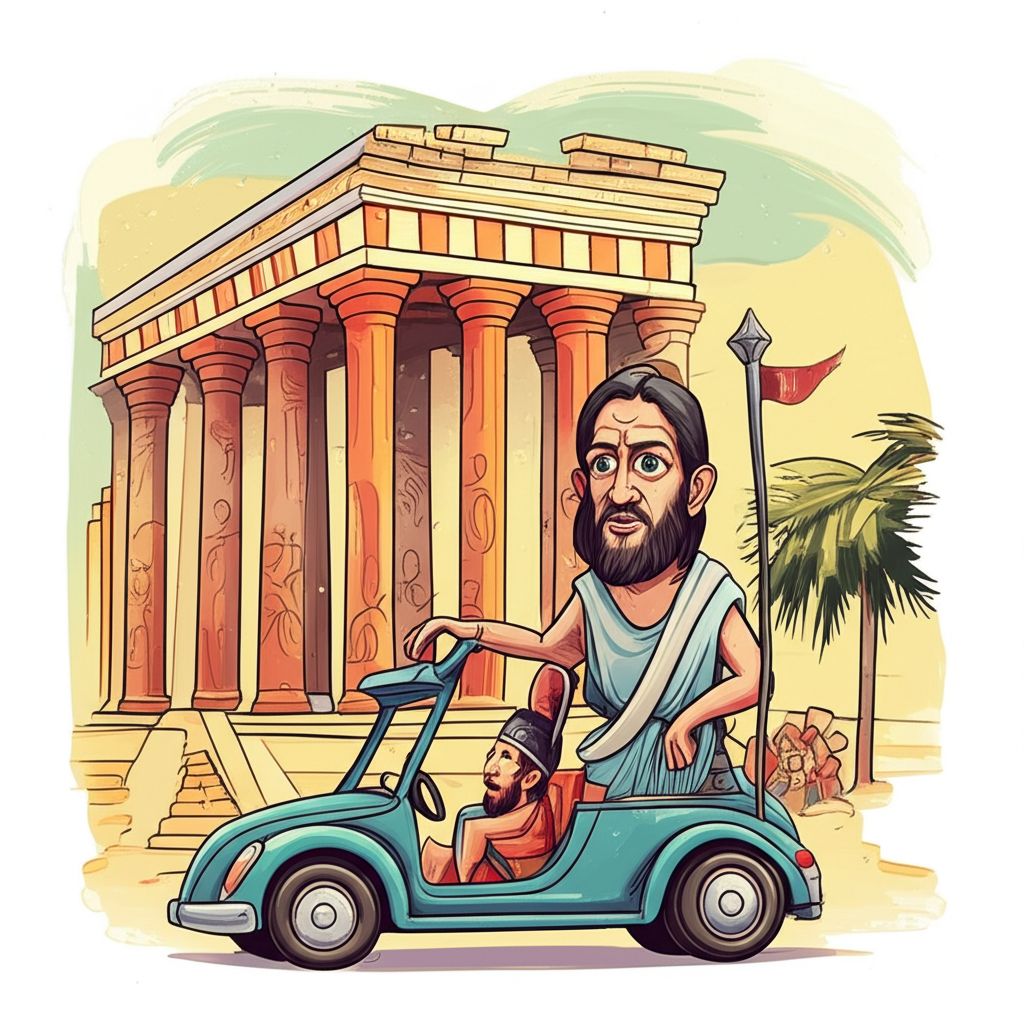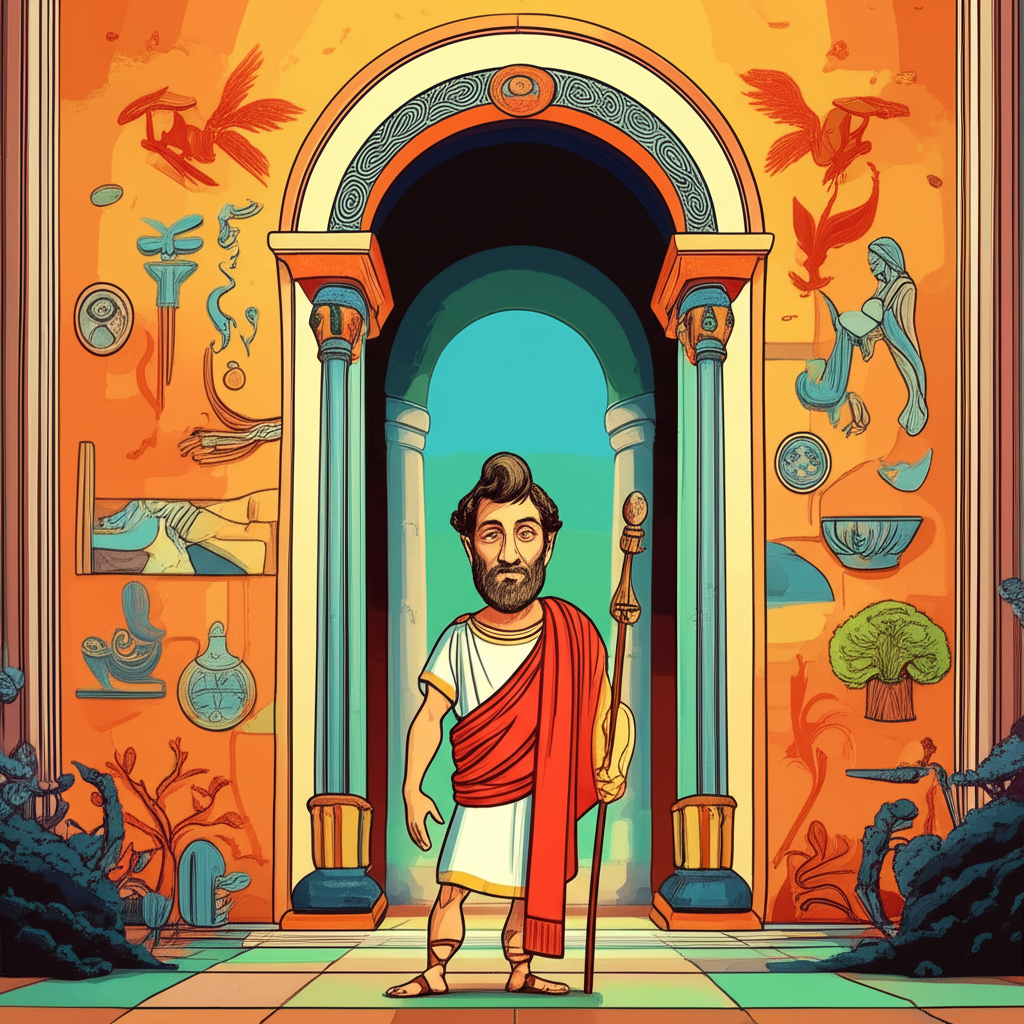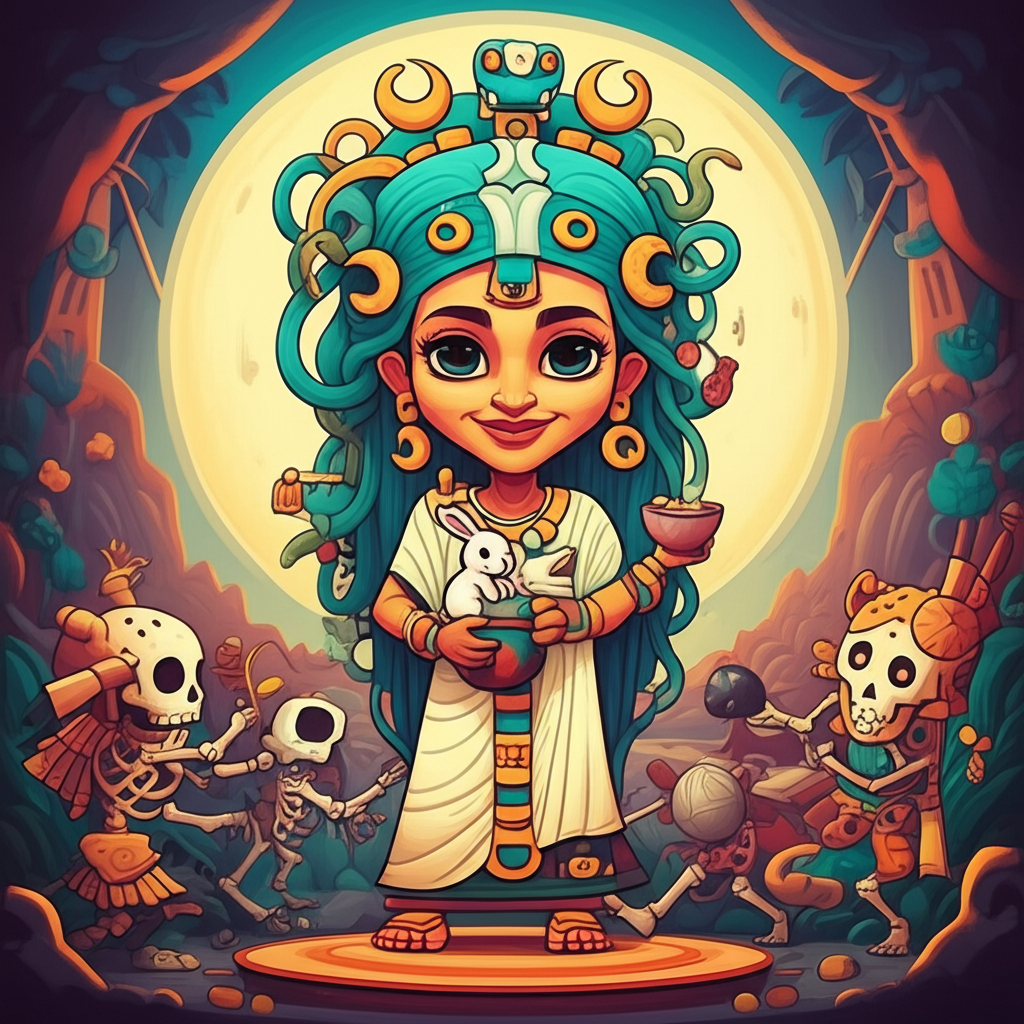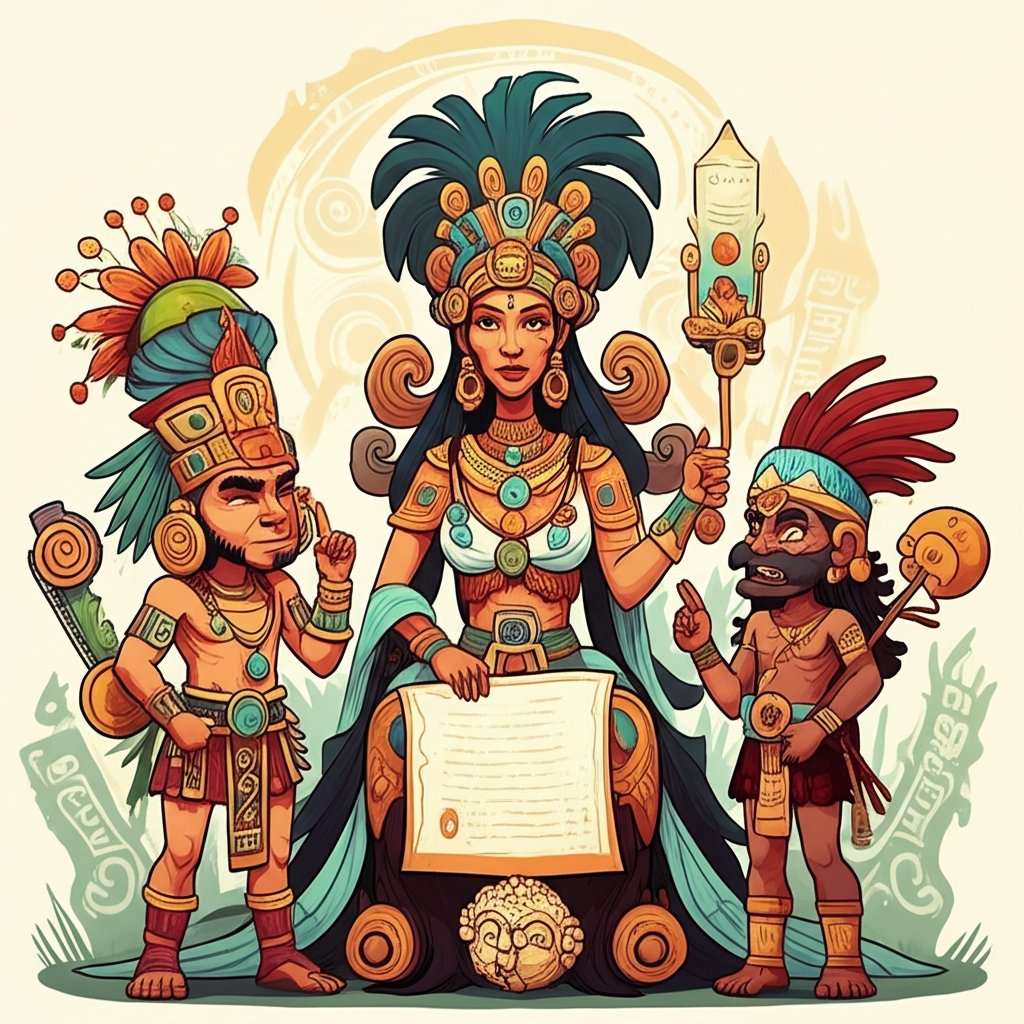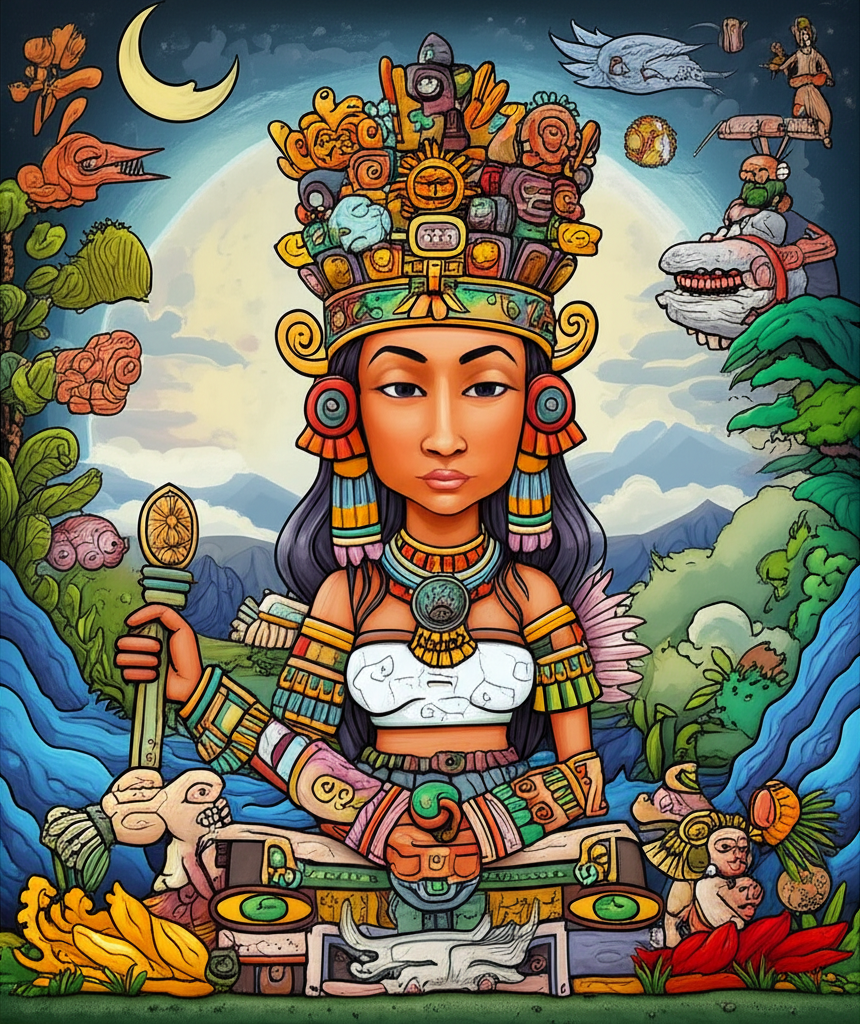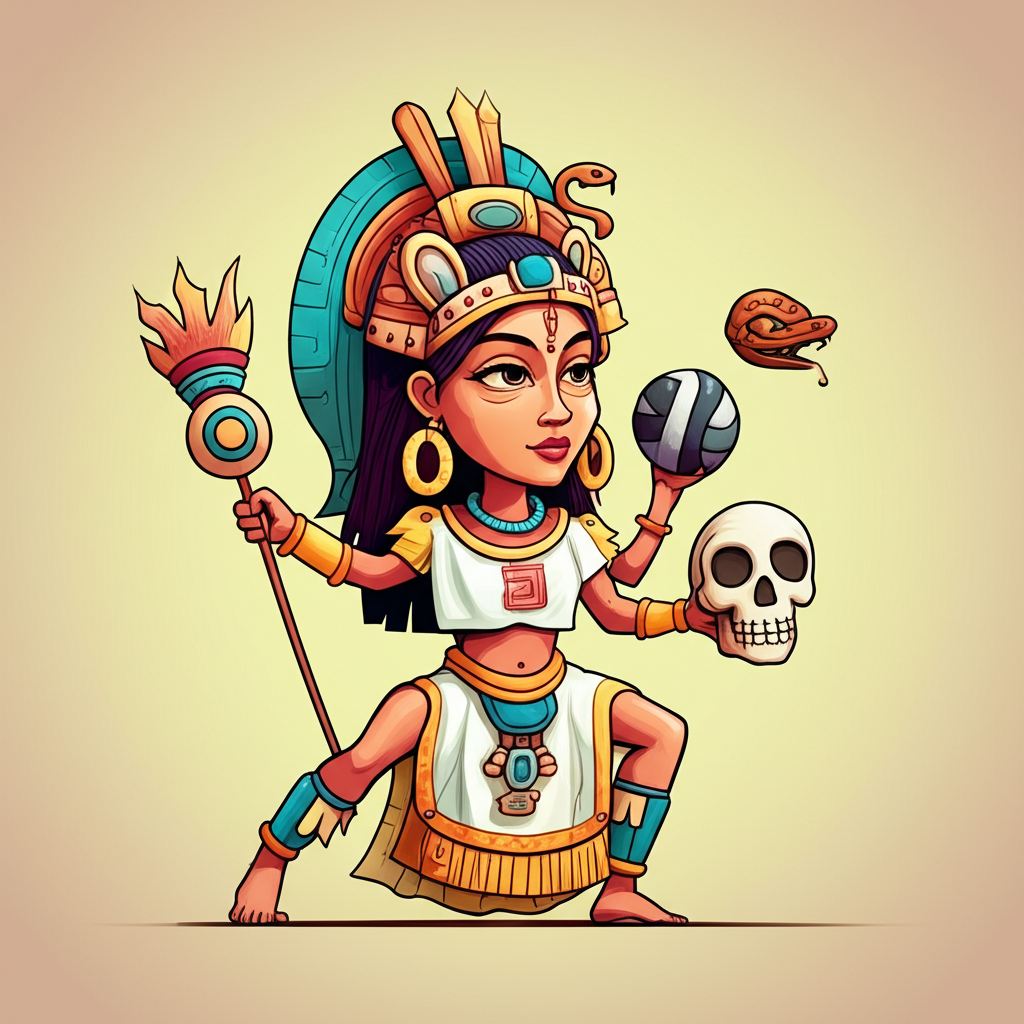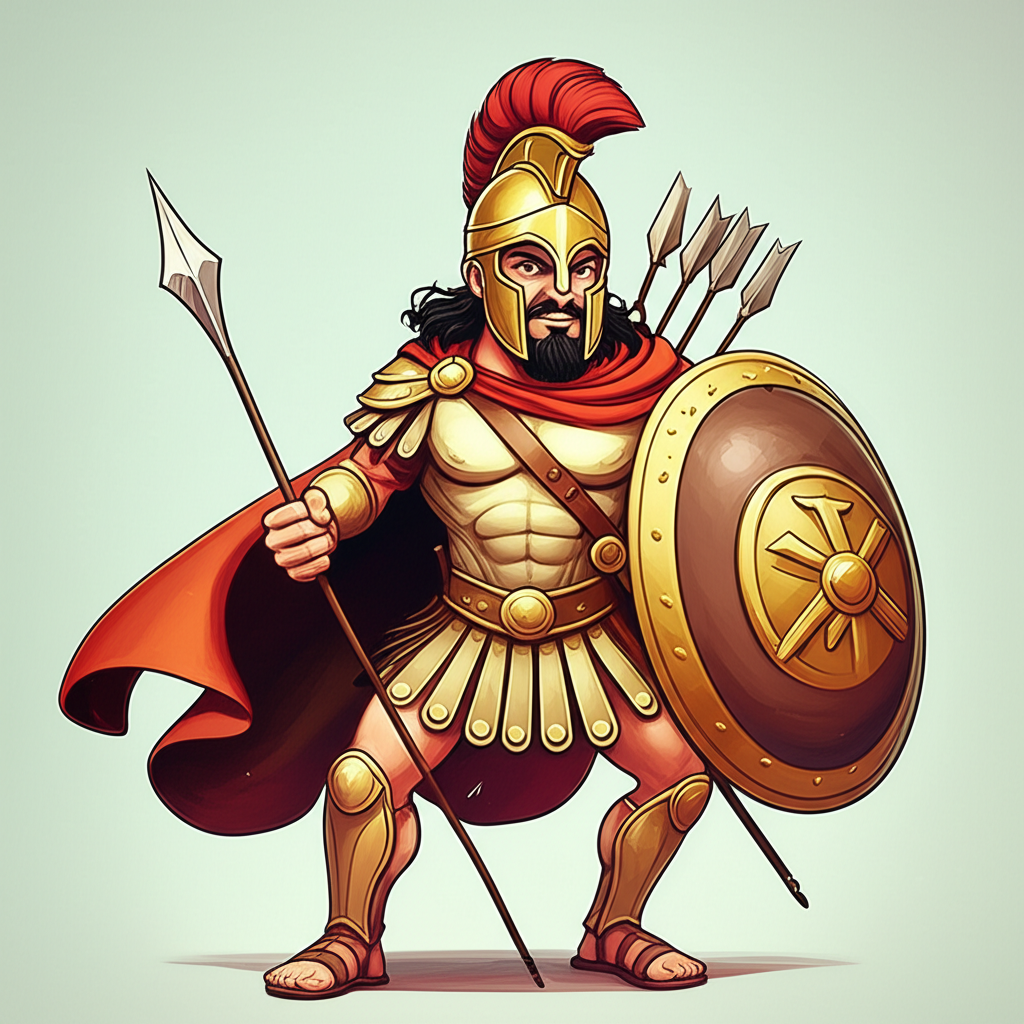
Introduction
The myth of Achilles and the Quest of Olympus is a captivating narrative woven into the rich tapestry of Ancient Greek mythology. These tales, passed down through generations, were not merely stories but fundamental elements of the cultural and religious fabric of the Hellenic world. It is crucial to understand that these are traditional stories, told by ancient peoples, reflecting their worldview and values. This particular narrative, while drawing upon the established character of Achilles, imagines a specific quest to Olympus, symbolizing the human struggle with destiny, ambition, and the divine.
Origins and Cultural Background
The myths of Ancient Greece emerged and evolved over centuries, from the Bronze Age through the Archaic and Classical periods. They were a cornerstone of a polytheistic society where a pantheon of powerful gods and goddesses, led by Zeus, was believed to reside on Mount Olympus. These deities were thought to control all aspects of the natural world and human life, often intervening directly in mortal affairs. For the ancient Greeks, the world was alive with divine presence, and every storm, harvest, victory, or tragedy could be attributed to the will, favor, or wrath of a god.
Their society valued heroism, honor (timē), glory (kleos), and a concept of fate (moira) that, while seemingly unchangeable, heroes often strove to defy or navigate. These stories were shared through oral traditions, epic poetry like Homer’s Iliad and Odyssey, dramatic plays, and visual arts. They provided explanations for the inexplicable, moral lessons, and models of behavior, both aspirational and cautionary. The myths reflected a society grappling with questions of mortality, justice, power, and the complex relationship between humans and the divine.
Character Description: Achilles, the Paragon of Warriors
Achilles, the central figure in this narrative, is one of the most iconic heroes of Greek mythology. He was the son of Peleus, a mortal king, and Thetis, a sea nymph and minor goddess. His divine parentage bestowed upon him extraordinary strength, speed, and martial prowess, making him virtually invincible in battle. Legend states that Thetis attempted to make him fully immortal by dipping him in the River Styx, holding him by his heel – the one part of his body that remained vulnerable. This "Achilles’ heel" became a powerful metaphor for a singular weakness in an otherwise formidable entity.
Symbolically, Achilles represents the ultimate warrior, driven by an insatiable thirst for glory and honor. He embodies the tragic hero, destined for a short but glorious life. His character is a study in contrasts: immense courage coupled with a fierce temper, loyalty intertwined with a profound sense of pride, and a deep love for his companions alongside a destructive wrath. He is a figure of immense power, yet bound by the limitations of his mortality and the decrees of fate, making him a compelling lens through which to explore the themes of ambition, sacrifice, and the human condition.
Main Story: Achilles and the Quest of Olympus
In the annals of myth, after a particularly arduous campaign where Achilles had once again proven his unmatched prowess, a profound disquiet settled within his heroic heart. Though his name echoed through the lands, and his victories were sung by bards, a deeper, almost divine ambition stirred within him. He sought not just mortal glory, but a recognition, a validation, or perhaps even a transcendence that only the gods could bestow. He felt the weight of his fated, glorious but brief life pressing upon him.
He sought out his divine mother, Thetis, by the murmuring shores where the Aegean waves met the sand. "Mother," he declared, his voice resonating with an uncharacteristic blend of yearning and defiance, "my deeds eclipse those of mortals, yet I remain bound by the fragile threads of fate. Is there no path to a glory beyond death, a lasting mark among the immortal?"
Thetis, her eyes reflecting the deep wisdom of the sea, gazed upon her son with a mix of pride and sorrow. "My son," she sighed, "the decrees of the Fates are immutable, even for the Olympians. Yet, a path exists, a perilous journey known only as the Quest of Olympus. It is not a path to godhood, but a trial to test the very limits of a mortal spirit. Should you succeed, the Olympians may grant you a vision of your ultimate destiny, or a fleeting glimpse into the true nature of glory, but failure would mean oblivion, or worse, their eternal displeasure."
Undeterred, Achilles accepted. The Quest, as Thetis described it, was a series of trials, each designed by a different Olympian to probe the hero’s core. His journey began in the sun-drenched plains, where Ares, the god of war, manifested as a legion of phantom warriors, each mirroring Achilles’ own skill and ferocity. Achilles fought for days, his legendary Myrmidons, though spectral, falling before his tireless blade. His strength and martial skill were absolute, yet it was his will to fight, even against an endless tide, that Ares sought to test. He emerged from the phantom battle, battered but unbroken, his spirit burning brighter.
Next, the path led him through a labyrinth of shadows and riddles, crafted by the cunning Athena. Here, his spear and shield were useless. He had to navigate treacherous pathways, decipher cryptic prophecies, and overcome illusions that played upon his deepest fears and desires. Achilles, known more for brawn than intellect, found this trial agonizing. Yet, guided by an innate, almost primal wisdom and an unwavering focus, he pierced through the deceptions, proving that even the mightiest warrior could possess a discerning mind.
His journey then plunged him into the crushing depths of the sea, where Poseidon, the Earth-shaker, held dominion. Achilles, protected by a divine aura from Thetis, faced monstrous kraken and navigated perilous currents. His trial here was not combat, but endurance and humility. He learned to yield to the immense power of the ocean, to find strength in adaptation rather than brute force, and to respect the vast, untamed forces of nature, a lesson often lost on his proud spirit.
Finally, his ascent led him to the cloud-wreathed peaks bordering Mount Olympus itself. Here, before the thunderous gates, Zeus, king of the gods, appeared not in person, but as a colossal storm, a whirlwind of lightning and roaring winds. This was the ultimate trial: to stand unwavering before the sheer, overwhelming power of the cosmos, to face the raw, unadulterated might of the divine without flinching, without despair. Achilles stood, his body battered, his spirit weary, but his gaze fixed, unwavering, upon the heart of the storm. He did not seek to fight Zeus, but to simply endure, to stand as a testament to mortal courage.
As the storm subsided, a profound silence fell. Achilles felt no godhood descend upon him, no magical transformation. Instead, a vision unfolded before his eyes: he saw his future, not as an immortal, but as the greatest mortal hero of all time. He saw the walls of Troy, the death of Patroclus, his own righteous fury, and ultimately, his fated end, struck by an arrow in his vulnerable heel. He saw the kleos (undying fame) that would be his, a legacy etched into the very fabric of human memory, far surpassing any fleeting life on Olympus.
The Quest of Olympus did not grant Achilles immortality, but it granted him something perhaps more profound: a clear, unvarnished understanding of his destiny and the true meaning of his glory. He returned to the mortal world, no longer seeking to defy his fate, but prepared to embrace it fully, ready for the epic deeds that awaited him, knowing his name would echo forever, a testament to his heroic spirit.
Symbolism and Meaning
The myth of Achilles and the Quest of Olympus, while an imaginative expansion, resonates deeply with core themes of Greek mythology. It symbolizes the human yearning for transcendence and the ultimate limits of mortal ambition. Achilles’ journey represents the struggle between fate and free will, a central philosophical debate in ancient Greece. While he sought to alter his destiny, the quest ultimately led him to accept it, highlighting the Greek belief that some things are beyond human control, even for the greatest heroes.
The trials themselves embody different aspects of heroism: Ares’ trial tests physical prowess and endurance; Athena’s tests wisdom and mental fortitude; Poseidon’s demands humility and respect for natural forces; and Zeus’s tests courage and submission to ultimate power. The quest also serves as a cautionary tale against hubris, the excessive pride that often led heroes to challenge the gods, inevitably resulting in tragic consequences. His ultimate "reward"—a vision of his destiny and a deeper understanding of glory—underscores that true heroism lies not in becoming a god, but in fulfilling one’s heroic potential within the bounds of mortality, leaving an immortal legacy through one’s deeds.
Modern Perspective
Today, the myths of Ancient Greece, and figures like Achilles, continue to exert a profound influence on Western culture. They are studied in literature, history, and philosophy courses, offering insights into the human condition, ancient societies, and the foundations of Western thought. Achilles, as an archetype, is reinterpreted in countless modern narratives, from historical novels and fantasy epics to blockbuster movies like "Troy," where Brad Pitt famously portrayed the hero.
His story inspires video games, comic books, and television series, often exploring themes of heroism, sacrifice, vulnerability, and the cost of war. Psychologically, his "Achilles’ heel" has become a universally understood idiom, and his character is often analyzed for its portrayal of rage, grief, and the pursuit of honor. These myths are no longer believed as religious truths but are cherished as powerful narratives that continue to resonate, offering timeless archetypes and exploring universal human experiences.
Conclusion
The story of Achilles and the Quest of Olympus, like all myths from Ancient Greece, stands as a testament to the enduring power of human imagination and the rich tapestry of cultural heritage. It is presented purely as a traditional story, a product of ancient human creativity, and not as a belief system to be followed or worshipped. As Muslims, we recognize that only Allah (God) is the true Creator and Sustainer of the universe, the One without partners or equals, and the sole object of worship. These mythological narratives, while fascinating and deeply embedded in human history, are understood as stories conceived by people long ago to make sense of their world. They remind us of the universal human quest for meaning, the desire to understand our place in the cosmos, and the timeless tradition of storytelling that binds generations across diverse cultures.
